
Lights go out? It's a raccoon's fault
This can include the food in your trash can and leftover pet food. Most often, raccoons will search for clams, frogs, fish and snails. Since these species live near water, they may be attracting raccoons to your property if you live near a water source. Raccoons may also eat common foods like insects, slugs, animals, birds and eggs.

Silhouette Of Trash Can Illustrations, RoyaltyFree Vector Graphics & Clip Art iStock
Exclusions are steps you can take to ensure raccoons stay out of your trash. These include keeping your trash can clean and free of odors that may attract a raccoon. The scent of mothballs, vinegar, ammonia, and cayenne pepper typically deter raccoons. Find ways to secure the lid of the trash can.
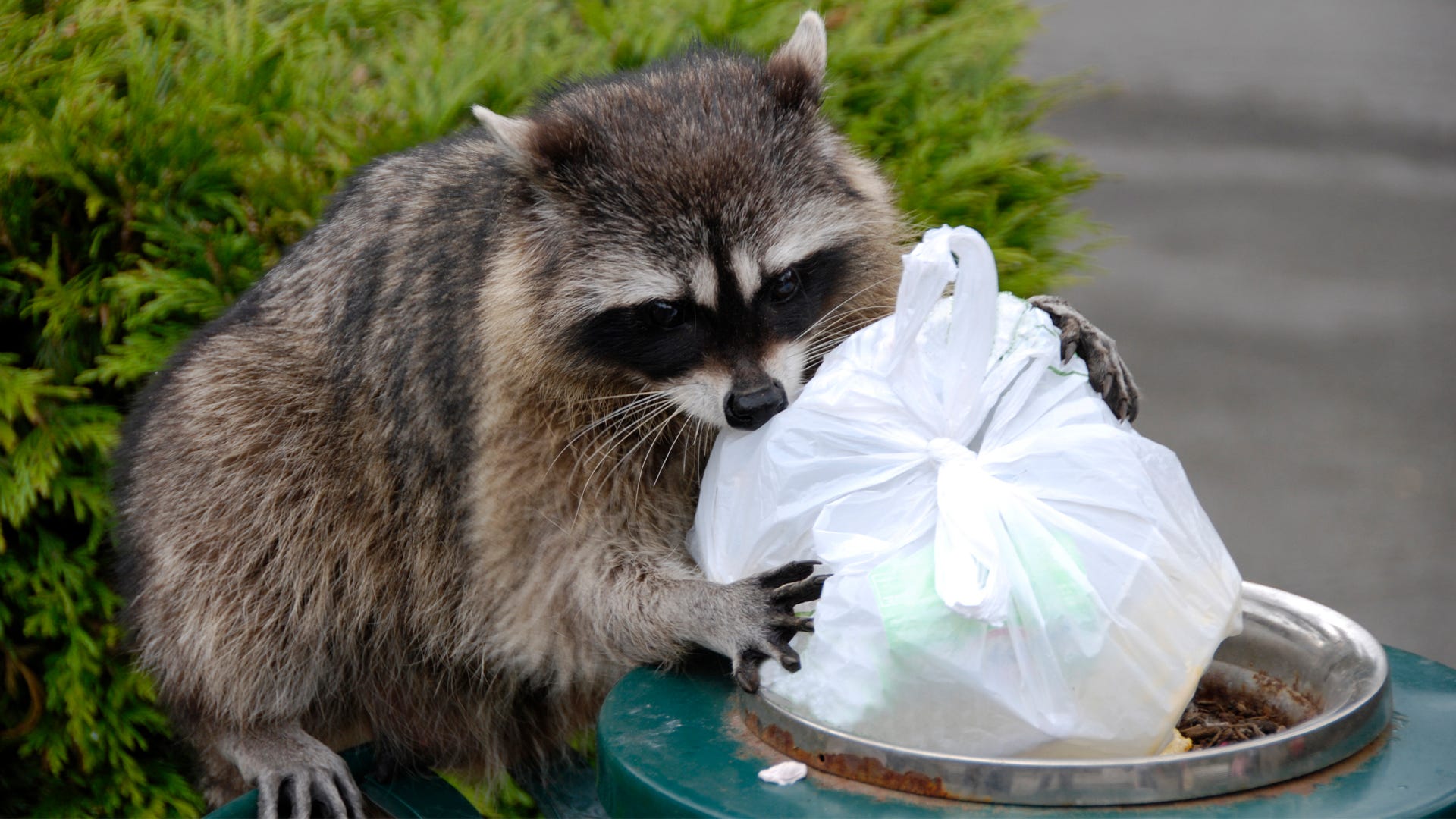
How to Keep Raccoons Away from Your Trash
It's hard for a raccoon to get sick because of eating garbage foods, and there are reasons for that. First, they have long intestinal tracts. This means that they are able to get rid of most of the toxins in the garbage food during the digestion process. Secondly, their stomach is highly acidic and will kill most of the harmful bacteria.
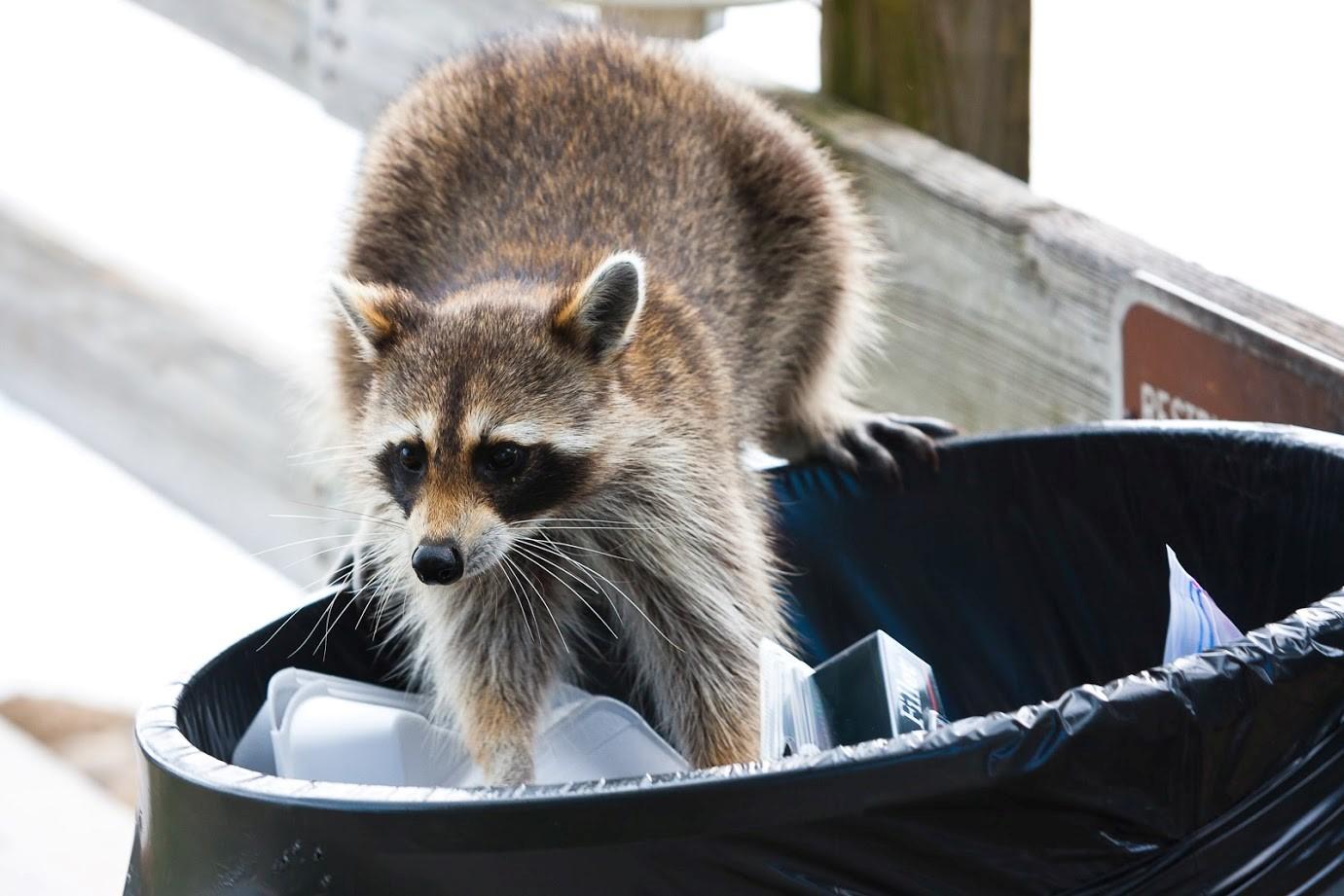
Animals That Love Dumpsters TriState Disposal
Raccoons prefer darkness and can be startled away by sudden light. 3. Use an Animal Repellent. Use an animal repellent to deter raccoons and keep them away from your trash. Repellents use scent, taste, or a combination of both to drive raccoons away from the protected area. Sprinkle granular animal repellent around the area where trash cans are.

Raccoons Eating Garbage Or Trash In A Can Invading The City In Stanley Park Vancouver British
Raccoons are adaptable to almost any environment, changing their diet based on what's easily available and costs the least energy to obtain. Raccoons often visit garbage cans for an easy meal and don't get sick from eating garbage by avoiding items that are too rotten or are altogether inedible. These trash pandas are omnivorous mammals.
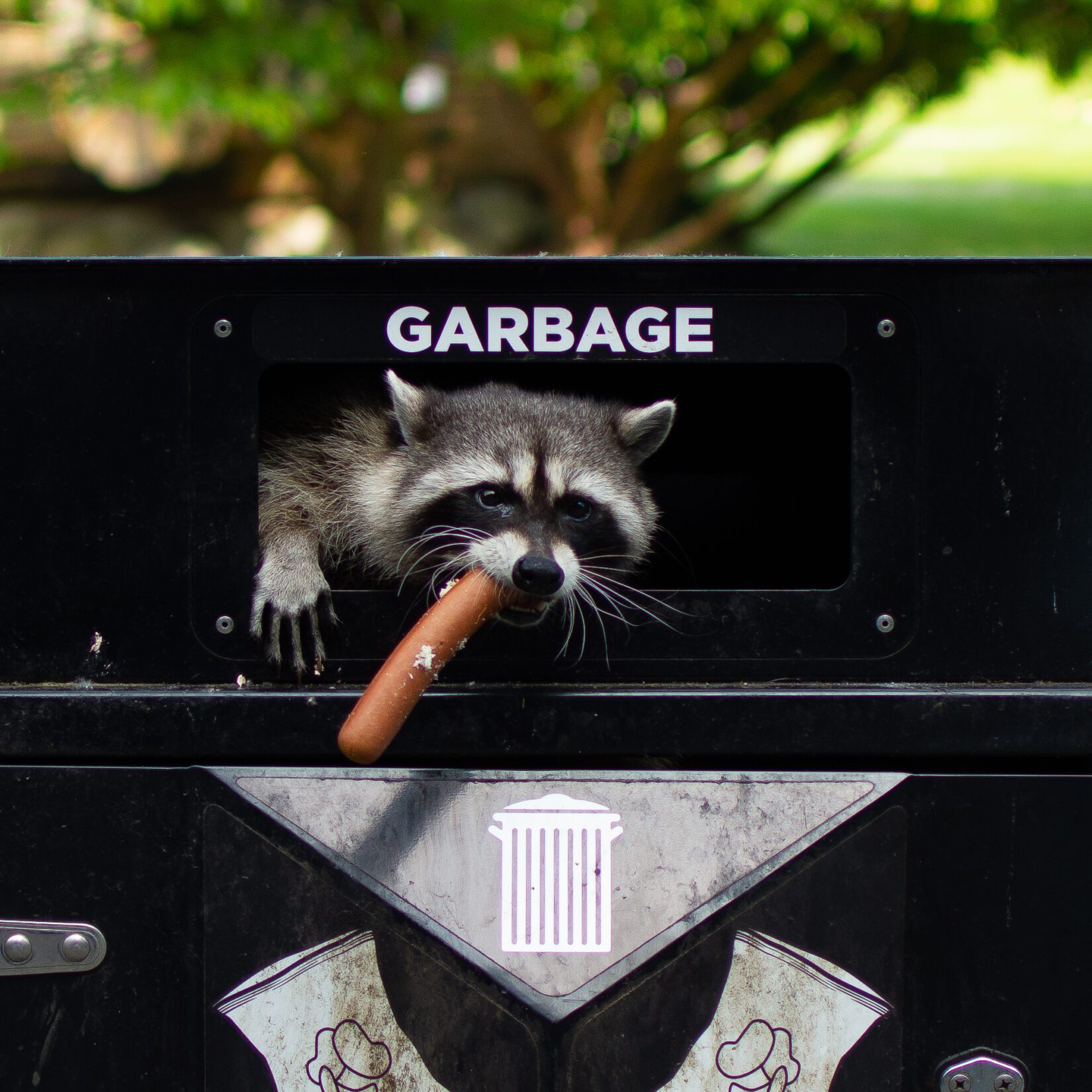
Raccoons in B.C.
Oct. 3, 2023. Early one morning last month, Laura Dudley Plimpton found herself in Forest Park, in Queens, staring at a pair of captured raccoons. It was not the first time that Ms. Plimpton, an.
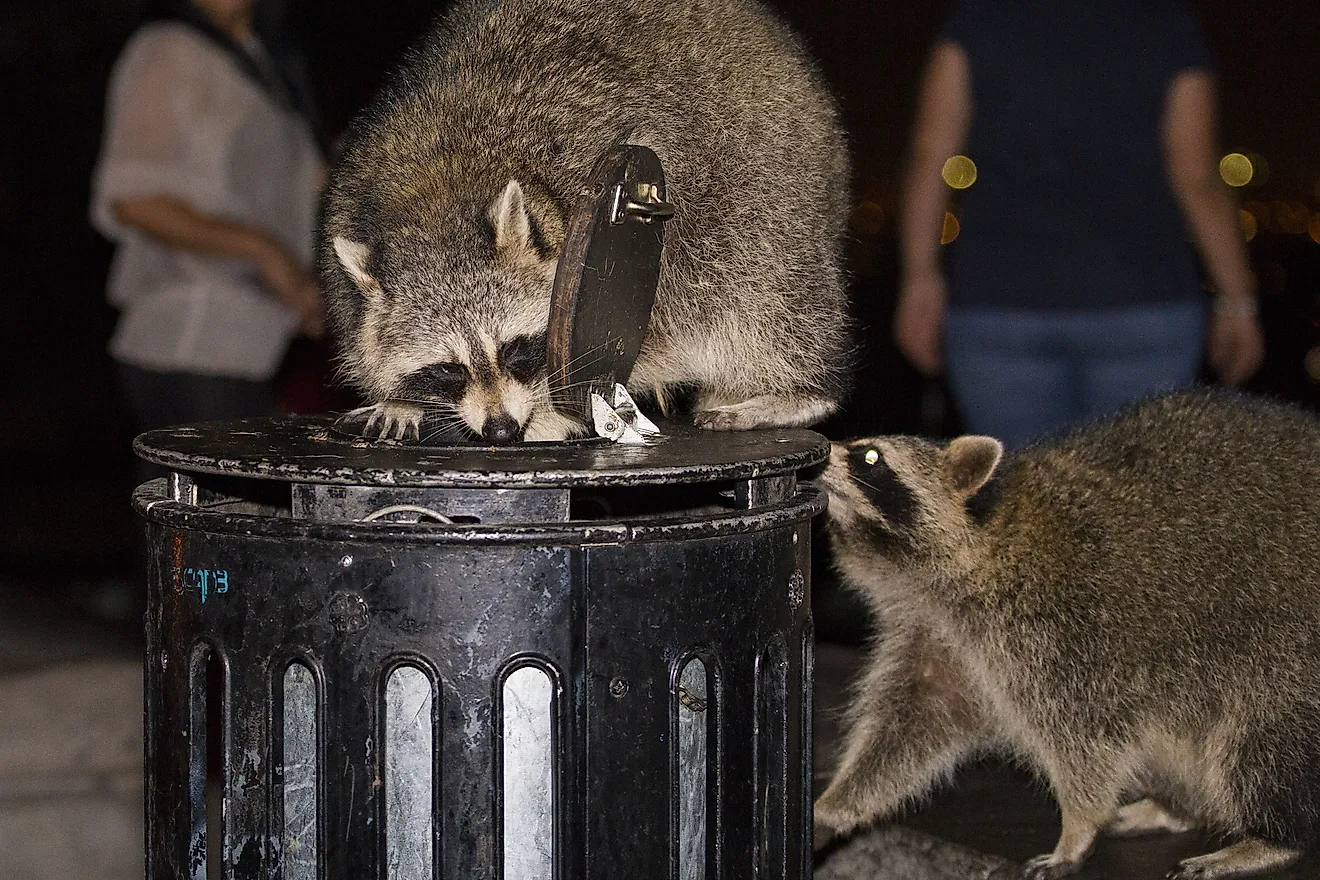
8 Common Animals With Excellent Night Vision WorldAtlas
2. Pick a locking metal trash can. A flimsy or loose can won't stand up to a cunning raccoon. Choose a metal trash can with a locking lid. While some plastic cans can lock, raccoons are often able to chew through plastic. 3. Install an extra lock (or two). Attaching clamps, a chain-and-padlock combo, bungee cords, or specially designed.
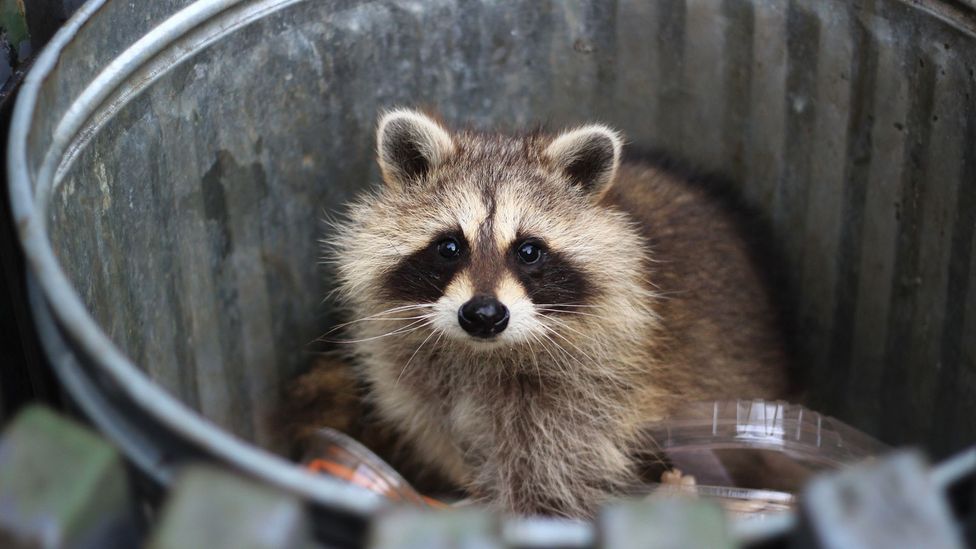
BBC Future
I came back later and captured the last one of them of them climbing back out of the bin, as you will see later in this video.

The Real Reason Why Raccoons Eat Garbage and Don't Get Sick Pest Pointers
To the researchers, this behavior indicated that the raccoons weren't intentionally cleaning their food before eating. But that doesn't mean it's a useless gesture — removing dirt from their meals is merely a beneficial byproduct of the action. Initially, scientists conjectured that raccoons lacked saliva glands and needed to add moisture.

The Real Reason Why Raccoons Eat Garbage and Don't Get Sick Pest Pointers
Believe it or not, one common theory is that raccoons eat trash simply because it's available. In the wild, these critters can eat a wide variety of foods. They can pick berries, eat plants, and more. However, they prefer to stick around bodies of water to hunt small fish, crustaceans, and frogs. When humans develop land, they move into the.

Health authorities monitor outbreak of illness in raccoon population at Greenwich Point
Raccoons will scavenge for food anywhere. Along with being intelligent, raccoons are pretty agile. You will find that they can quickly dive into a garbage bin and scavenge for food scraps. They can use their front paws to select edible items and skilfully jump out of the garbage dump to eat the leftover food. If the garbage bin is not securely.
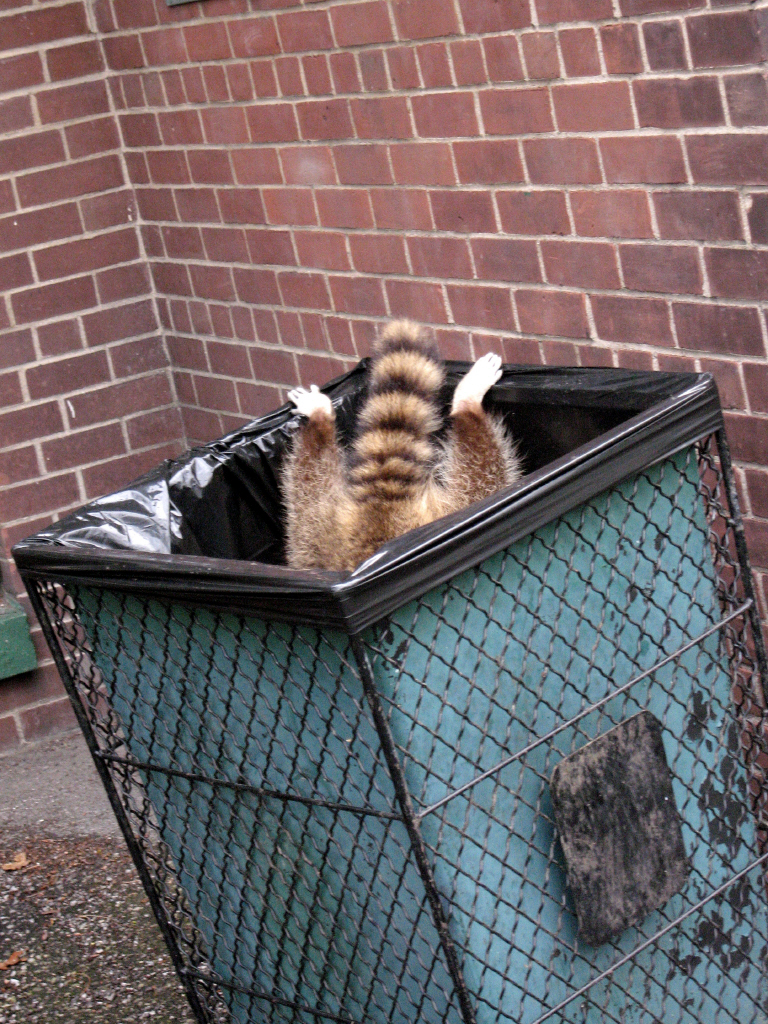
Hungry Raccoon
A simple and budget-friendly option to keep raccoons out of your trash is to place a large rock on the lid. The rock should be heavy enough to weigh the lid down but also so the raccoons can't move it. You'll need to remember to replace the rock each time you use the garbage can. 4. Keep away in enclosed space.

8 Times Raccoons Proved Their Reputation As Sneaky, GarbageEating Pests Was Way Off
Summary. In summary, raccoons eat from the garbage because this is the easiest place to find food in urban areas. The garbage is filled with foods that humans have thrown away. Trash lids are very easy for raccoons to pry open. In addition, these animals have evolved to be able to resist many types of bacteria and parasites in the garbage.

Mapache comiendo fotografías e imágenes de alta resolución Alamy
With keeping this in mind, there are a few tips and tricks you can try at home to prevent pesky raccoons from messing with your trash and to stop them from re-visiting your home. The easiest tip to follow is to keep your garbage bags and bins in a place that is out of the raccoons' reach. Storing them in a confined space similar to a garage.

My advice for coping with Covid19 anxiety and depression Eat like a raccoon
Clean Your Trash Cans Regularly. Another way to keep raccoons out of your garbage is to clean your trash cans regularly and remove any food residue or odor that may attract them. You can use dish soap and water, vinegar and water, or bleach and water to wash your trash cans inside and out. You should also clean the area around your trash cans.
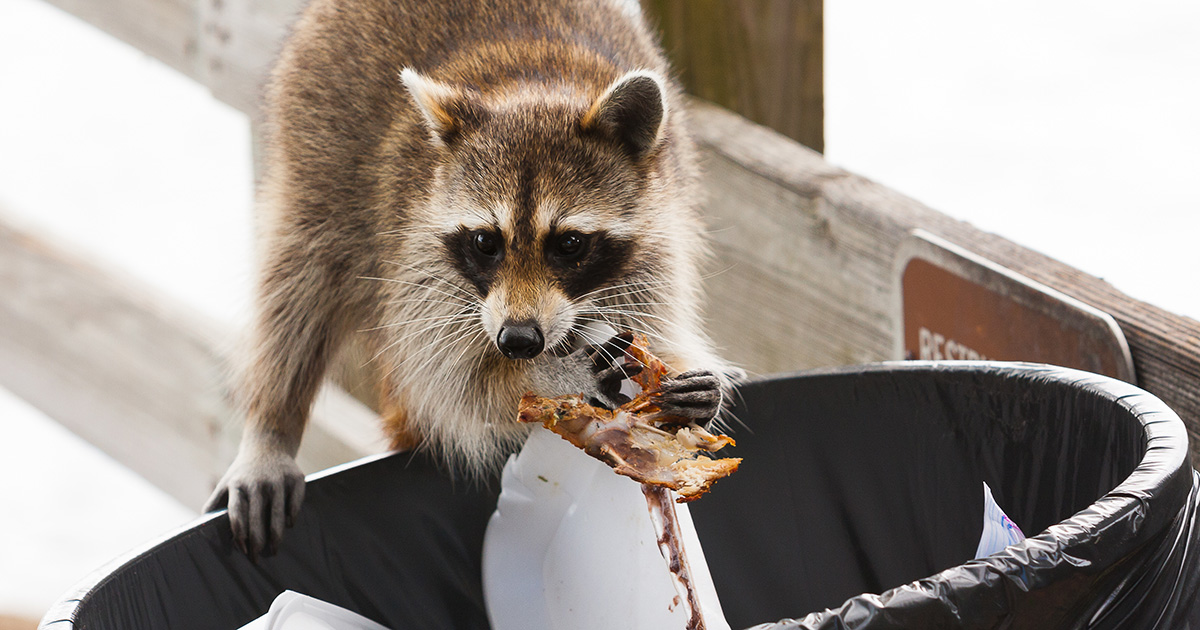
Raccoon Can’t Believe Someone Would Throw Away Perfectly Good Trash
First, raccoons can weigh nearly 60 pounds, which gives them an advantage when it comes to knocking garbage cans over and causing the contents to spill out. You can use garbage cans with latching lids that prevent them from spilling when knocked over. However, raccoons have five-fingered front paws that are very dextrous despite lacking.